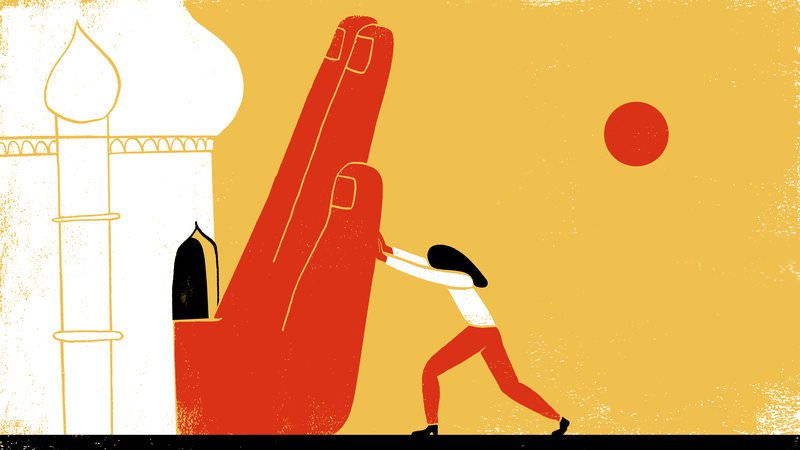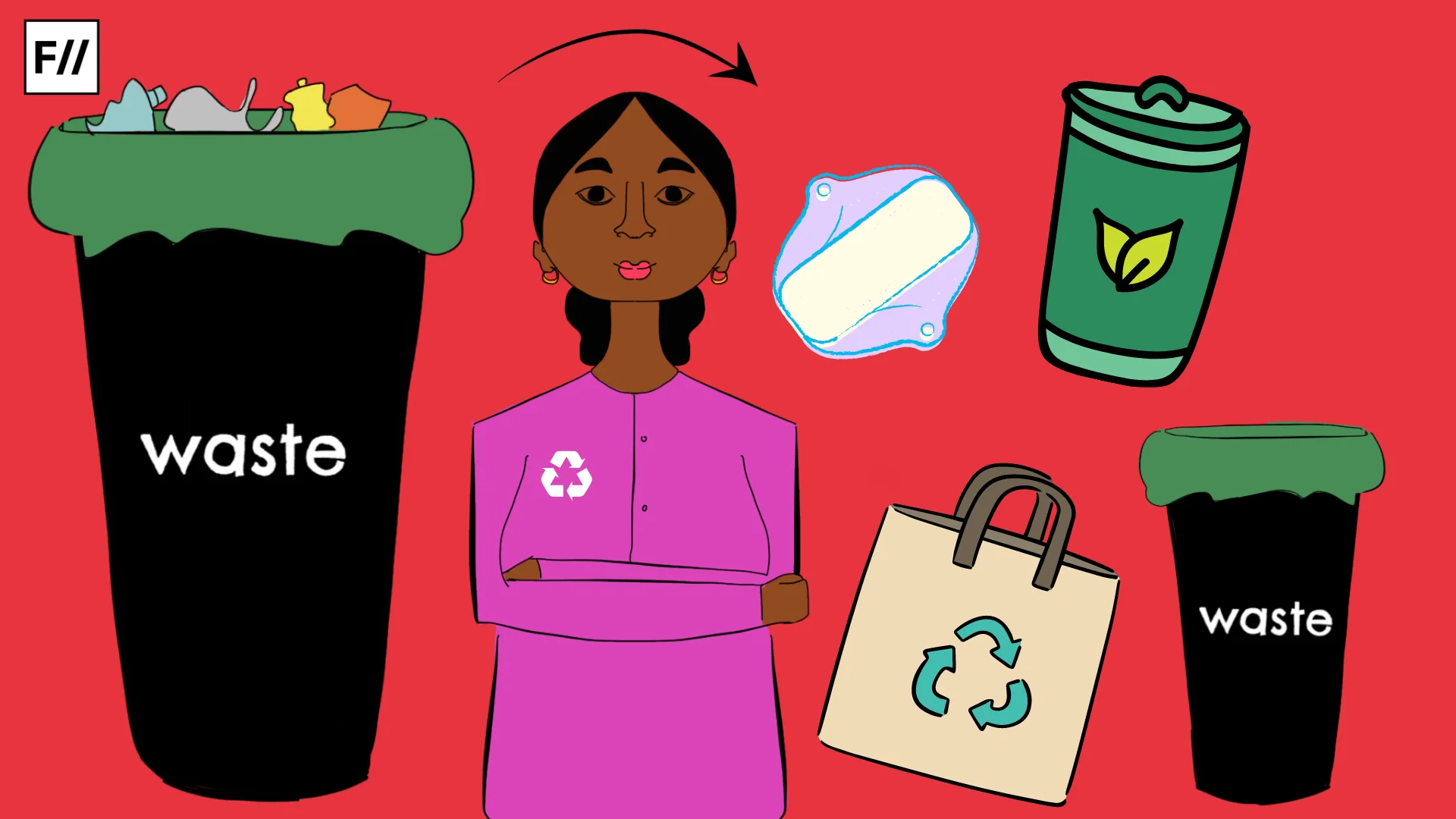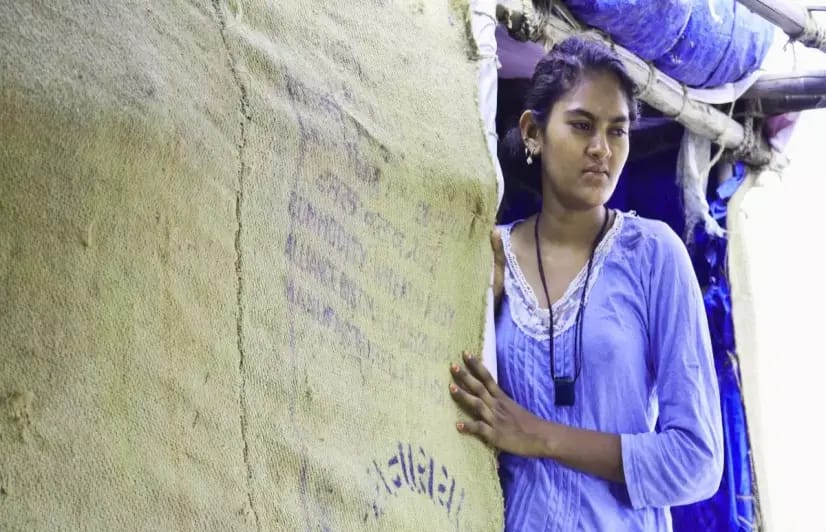 Editor’s note: Approx 125kg of sanitary waste is generated per person during their menstruating years and these sanitary napkins can take 500-800 years to break down! #ThePadEffect is a campaign to advocate for sustainable menstruation and prevent thousands of tons of sanitary waste.
Editor’s note: Approx 125kg of sanitary waste is generated per person during their menstruating years and these sanitary napkins can take 500-800 years to break down! #ThePadEffect is a campaign to advocate for sustainable menstruation and prevent thousands of tons of sanitary waste.Posted by Rajasi Kulkarni
Menstruation, also referred to as “monthly”, “aunty”, “date”, “problem”, “time”, or “monthly birthday”, amongst others, is a natural biological process that all women regularly undergo during a major period of their lives. The words used to refer it can reflect how a woman/girl thinks about her period. In many a sense, menstruation, owing to its relationship with fertility and motherhood, is seen as closely associated with [cis] womanhood itself – thereby attitudes towards menstruation often determine attitudes towards women.
This very natural process has been in the middle of the controversy that is going around temple entry, gender equality, etc. On one hand, many sanitary napkin advertisements encourage women to ‘touch the pickle’ and continue pursuing their interests like sports and dance, but on the other hand our traditions and some taboos restrict these activities. This creates a confusion in adolescent girls and if they try to question these, they don’t always receive an answer.
Also Read: From Menstrual Taboos To Etiquettes – How To Menstruate Politely
I remember growing up with not entering the temple or not attending religious functions when I was menstruating. Especially, when we had functions at home, I found my mother juggling responsibilities but I was unable to help her. It was difficult for my parents to explain to me why we follow certain traditions and now after growing up, I can feel what parents go through. Though my parents are well educated, they believe in respecting everyone’s sentiments hence I was allowed to pray at home but outside it was banned. Gradually, our arguments changed to meaningful discussions.
we all are here in the world due to menstrual blood, and still it’s considered impure.
In some cultures it’s believed that a woman should avoid sleeping with her husband during her menses. It may sound ridiculous as many modern women are also seen following this tradition. My colleague strictly followed this and suffered emotionally as she couldn’t even talk with her husband! On one hand it seems unjust but when some rural women or women of low income groups were asked the same, they said, they look at it as an opportunity to sleep peacefully because they are saved from husband’s abuse in those days. An old tribal woman I met in Chhattisgarh mentioned that sleeping away from husband serves as safety net for women as it avoids forceful sex and abuse by drunk husbands.
In some parts of Maharashtra and Karnataka, a prevalent practice is of menstruating women living in a different room and restricting their daily activities. When I asked my grandmother about this, she answered that in early days, most of the women worked very hard at home and also in the farms. Living in another room for 4 days gave a woman an opportunity to rest and take some time for herself. Times are changing and most women don’t do hard physical activity anymore. So now women may not look at it as an opportunity to rest and slow down but a restriction from carrying on with regular life.
Girls are also expected to wash their clothes and utensils on their own. To some extent this teaches her to be self-reliant but it also makes her feel unwanted and dirty, during those days. This may negatively affect her yet undeveloped personality. In a way, we shame her which she not only carries with herself but passes it on to women she meets and next generations.
When traditions/ norms are forced on girls without explanation, it is possible that they might rebel and thus cause friction between mother and daughter. If we could explain the reason behind traditions, girls may accept it. I have met some women who were very submissive when they lived with their parents as they couldn’t question traditions related to menstruation but once they got married and had kids, they maintained a healthy dialogue and also changed few things as per their comfort and choice.
The most commonly heard misconception about menstruation is ‘menstrual blood is impure’, ‘no one should touch or see your blood’, or ‘it’s bad blood’ – these reactions haven’t changed for ages. When I meet women for sessions on menstrual health management, I get to hear that periods are an elimination of “toxins and impure blood”. Interestingly, we all are here in the world due to menstrual blood, and still it’s considered impure. I am surprised that very few women actually know about their bodies. There is a gap which needs to be addressed and we all should thrive to understand our body in a scientific manner.
In some communities of Chhattisgarh, it is believed that menstrual blood is very powerful and can be used by a woman herself or others for black magic and therefore, women should be very careful about destroying this cloth after use. So women mostly dry this cloth in discreet way and destroy it after every few months. There is another, completely opposite custom in mothers of Manipur who preserve the cloth used by their daughters during menarche (first period) and gift it back to her when she gets married. This cloth is believed to be so powerful that it will protect the girl and her family from poor health and other ills.
I must say that there are different perspectives to look at the same thing and we should choose what is best for us. One solution can’t fit everyone, and hence cultural norms should be understood before labelling them. Western thinking has high influence on urban living which in turn influences low income groups and rural living. We can’t change certain circumstances but we can try best to not change anyone’s behaviour by labelling but educating ourselves first, then reach others.
It’s important to understand that everyone has freedom to make choices for themselves. Let’s help each other understand this and start a healthy conversation on this topic. I hope for a future where men and women both freely talk about this topic like any other biological process and remove the shame associated with this topic.
It’s important to understand that everyone has freedom to make choices for themselves.
Rajasi Kulkarni-Diwakar is early childhood educator by profession, also an enthusiast menstrual health management educator. Currently lives in Mumbai and can’t live without writing and traveling.
Featured Image Credit: NPR
About the author(s)
Guest Writers are writers who occasionally write on FII.




